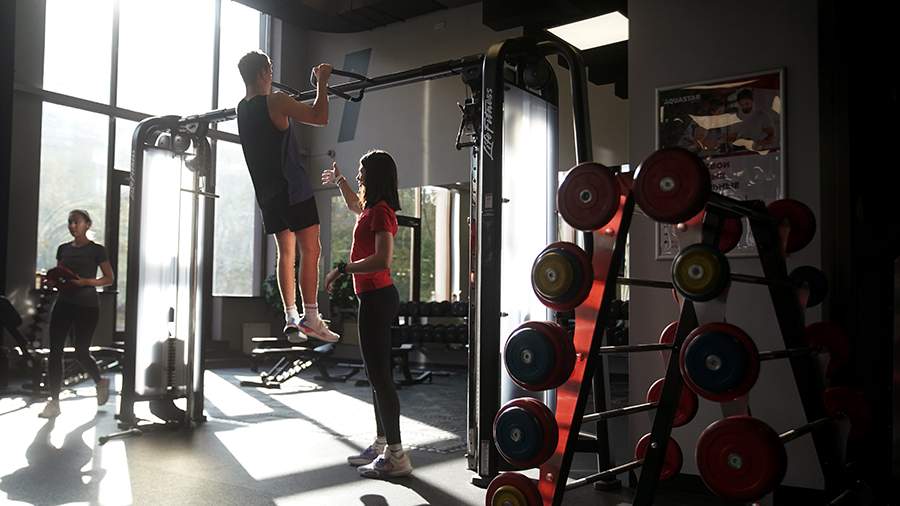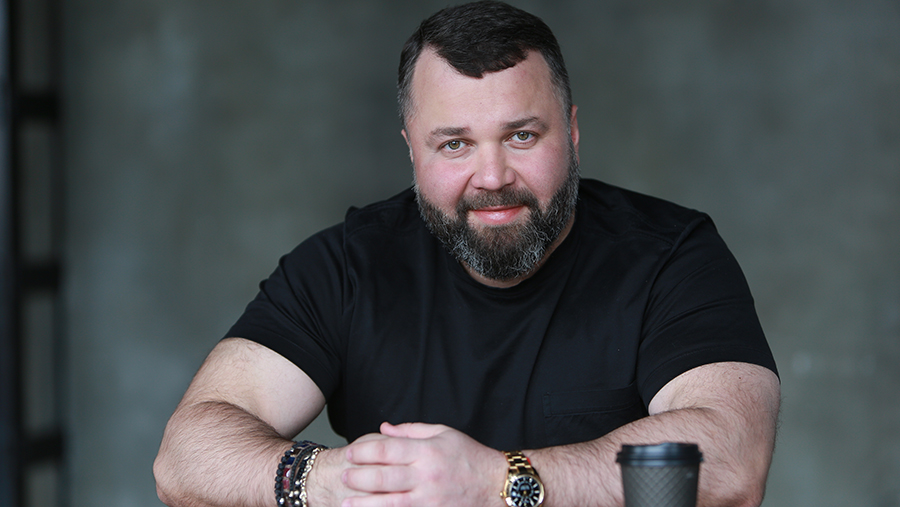"An investor should have the intuition of an entrepreneur."
The new economic year begins under the conditions of a tight monetary policy pursued by the Central Bank of the Russian Federation in recent months. How and where to invest money in such a situation, is it worth investing in business, and what difficulties may arise for investors in the coming year? Maxim Kagansky, an investor and president of the Pride Fitness chain of fitness clubs, answers these and other questions in an interview with Izvestia.
- Is it worth investing in business now - against the background of a rather difficult economic situation and Western sanctions?
- Entrepreneurs, business owners, of course, will support it. By my own example, I can say that most of what I earn I invest in projects related to sports and support for young athletes. Will I stop doing this because credit money has become expensive in the country? No, of course not. I approach each of my business objects in the same way. If in 2025 I plan to open new Pride Fitness clubs, assist in the operational management of franchisees who have joined the brand, open a new hypermarket in Khimki - everything must be fulfilled. Nothing will change globally for many enterprises, the part of the processes connected with the renewal of machinery and equipment, where the price has increased many times, will be slowed down for a while.
- How long will the investor have to freeze in such a state?
- There is no need to freeze. Yes, now we are living through a period when the policy of the Central Bank indicates that cheap credit money in the country will not be available quickly. Not in a year and probably not in a year and a half. At the same time, deposit rates are at least twice the rate of inflation, which confuses many investors and holds back financing of already started projects in favor of savings on deposits.
- Alongside your entrepreneurial background, you have a lot of experience in investing. These are two different paths. Should an entrepreneur have the "flair" of an investor?
- Rather, an investor should have the intuition of an entrepreneur to feel whether his investments can work and pay off.
- And how is it in your case?
- I am an investor first and foremost, and my experience of searching, studying assets has taught me not to pay attention to high-profile success stories, in most cases they are not about creating new things. If you want to create something, you create it. That is why there is no place for fiction in my business, everything is extremely banal. First came a chain of fitness clubs. We thought a lot about how best to do it, day after day we created a team, researched the behavior and habits of citizens, did a lot of research. Then the network began to be strengthened with additional links, services, sports products. So grew a group of companies, which became the basis for unique in its format sports projects for teenagers, young people and experienced athletes.
Pride Nikolay Team - a team of professional athletes, Pride World Powerlifting Federation (WPFP), Pride JFC - Russia's first MMA promotion for juniors - became independent areas of the holding. At the same time, I invested in facilities that, in my estimation, will be able to operate for a long time.
But no investor will tell you the formula for a successful business, because there simply isn't one. That's why he is an investor, he starts everything at his own risk and personal means.
- What segments seem to you the most promising for investment today - production of goods, retail, services, etc.?
- We are approaching the time when taking care of people's health, their inner state, providing them with the most essential things - safe housing, food and quality medical care - become a priority. There are indeed many business areas for development. For example, the healthcare sector can show improved results.
- What specific sectors are the most profitable to invest in in 2025?
- This question should probably be asked to the oracles. If you look for profit, you may miss out on projects that will shoot up not in the moment, but in three years.
- What difficulties may arise for investors in 2025? How, in your opinion, to cope with them?
- The first quarter of 2025 will take place within the framework of the general trend of "appreciation". Companies are raising prices for their products due to the increased tax burden, growth of the minimum wage and tariffs for housing and communal services.
If the tight monetary policy lasts longer than expected, companies will face higher and more prolonged growth of costs - for personnel, purchase of raw materials and supplies. However, this trend will encourage companies to expand the pool of suppliers and counterparties, stimulate competition, which will lead to new offers and acceptable conditions.
- Won't speculation and competitive wars start?
- Business is itself a fiercely competitive environment. Thinking that you are the only one inventing and creating the unique is not professional. As soon as you stop noticing that the same progressive people are working against you, that's basically where you end up. You have to always keep in mind that in the market you have to deal with really strong and fearless comrades, each of whom wants to be the best among equals. Competitors are teachers, they should be respected, and then conflicts can be avoided.
- Is the situation now favorable to invest in non-profit projects? How to choose them?
- What are non-profit projects? Those on which business does not earn money, but, on the contrary, gives it away for the good. If a business is ready to give part of its profits to charity, then it should establish its own fund to control it itself and monitor its transparency. It is with this approach that in 2024 we founded the Nikolasha Charitable Foundation, which supports a large number of projects and creates its own aid programs based on the principle of systemic charity. In addition, our fund cooperates with other NPOs, which allows us to provide the necessary assistance to the funds' wards in time.
- What goals do you set for yourself as the leader of the group of companies?
- I still prioritize sports education and upbringing of young people, as well as those amateurs who have set a goal to grow up to professionals in sports. These two aspects relate to my social role in working with people. And I enjoy helping young people move on in the field of sport. Sport is a pillar, and when you see that the guys are firmly on their feet, it will be much easier for them in their lives and careers.
Переведено сервисом «Яндекс Переводчик»


